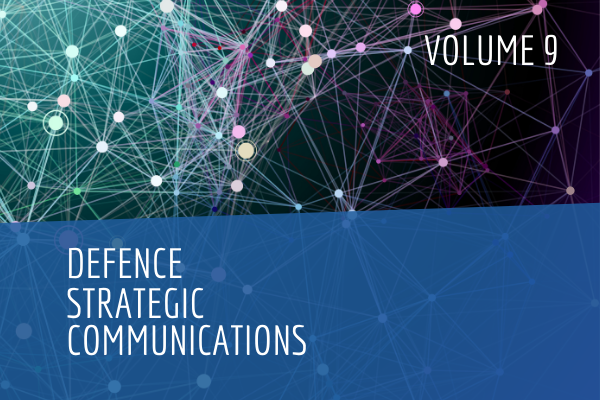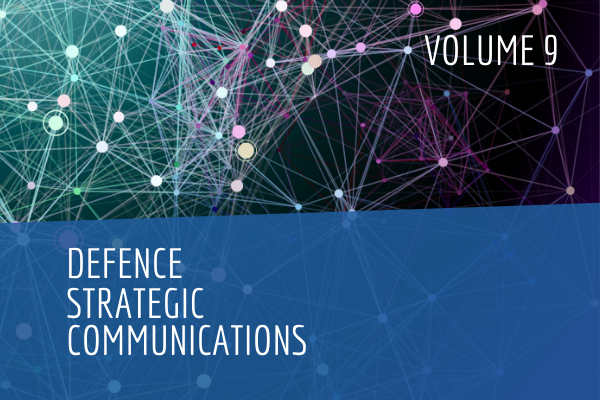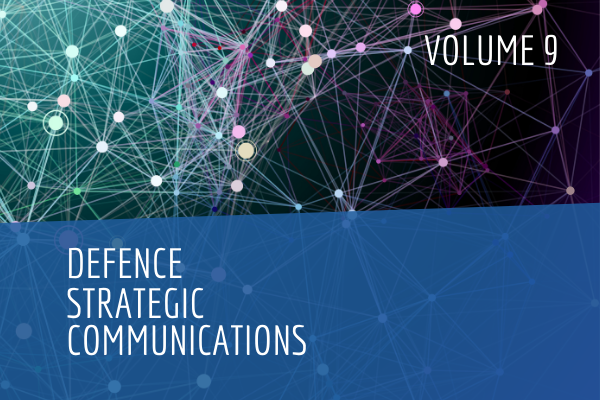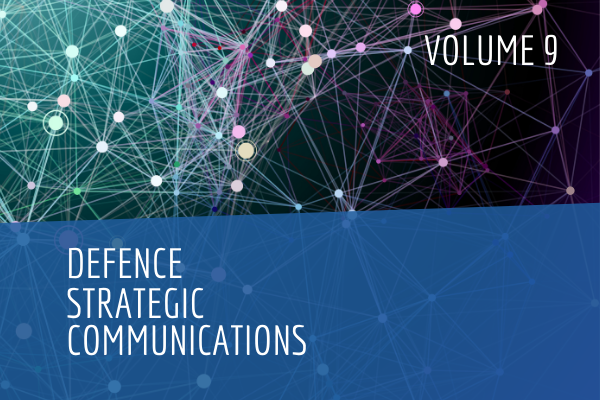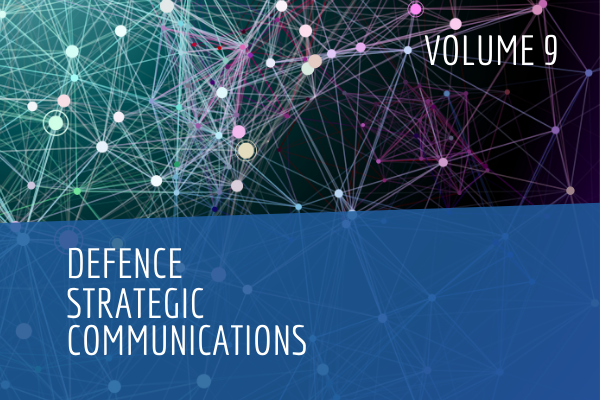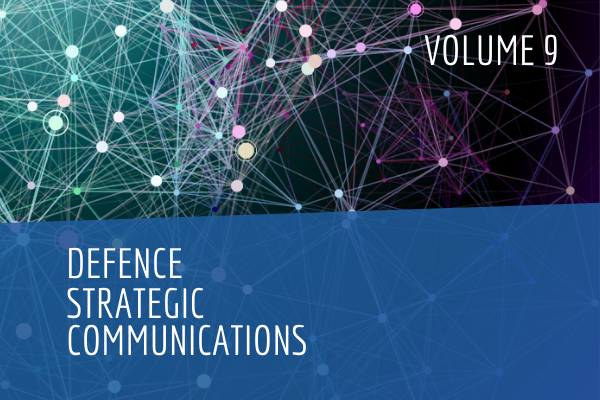Abstract
The Islamic Revolutionary Guard Corps (IRGC) have consolidated an economic empire, acting as a corporation similar to AT&T or Vodafone. Yet, despite the prominence of the IRGC in the Iranian economy, few studies have engaged directly with the topic, and fewer still have examined the forces motivating its involvement.
This article considers the extent to which the IRGC relied on the Iranian communications economy under former President Ahmadinejad to justify and promote its strategic narrative. Defining ‘communications economy’ as the system of ownership and distribution relating to communications infrastructure, the article investigates the alignment between strategic narratives and military ownership of communications infrastructure. The article argues that the IRGC relied on the communications economy as an ideological channel, a coercive tool of power projection, and a persuasive tool of defence; but also, beyond ideological concerns, the IRGC as an opportunistic institution became reliant on the communications economy as a source of capital gain.
Keywords—strategic communication, strategic communications, IRGC, strategic narrative, communications economy, infrastructure, military ownership
About the Author:
Monika Gill is a Doctoral Researcher based in the King’s Centre for Strategic Communications (KCSC) at the Department of War Studies, King’s College London. She holds an MA in Intelligence and International Security from King’s College London, with a focus on Strategic Communications.
Bibliography
Abedin, Mahan, Iran Resurgent: The Rise and Rise of the Shia State, (London: Hurst & Company, 2019).
Adelkhah, Nima, ‘Iran Integrates the Concept of the “Soft War” Into its Strategic Planning’, The Jamestown Foundation Terrorism Monitor 8, № 23 (2010).
Ahram, Ariel I., Proxy Warriors: The Rise and Fall of State-Sponsored Militias, (Stanford University Press, 2011).
Akamai Report, ‘The State of the Internet: 2nd Quarter, 2009’, State of the Internet Connectivity Reports 2, № 2 (2009): 1–42.
Akhavan, Niki, Electronic Iran: The Cultural Politics of an Online Evolution, (Rutgers University Press, 2013).
Alaoui, Sarah, Tired Narratives, Weary Publics, (Center for American Progress, October 2018).
Alfoneh, Ali, How Intertwined Are the Revolutionary Guards in Iran’s Economy?, (American Enterprise Institute, 2007).
Alfoneh, Ali, The Revolutionary Guards’ Looting of Iran’s Economy, (American Enterprise Institute, 2010).
Alfoneh, Ali, ‘All the Guard’s Men: Iran’s Silent Revolution’, World Affairs 173, № 3 (2010): 73–79.
Alfoneh, Ali, Iran Unveiled: How the Revolutionary Guard is Transforming Iran from Theocracy into Military Dictatorship, (Washington, D.C.: AEI Press, 2013).
Ansari, Ali, ‘The Revolution Will Be Mercantilized’, The National Interest, 11 February 2010.
Axworthy, Michael, Iran: What Everyone Needs to Know, (Oxford University Press, 2017)
Bal, Mieke, Narratology: Introduction to the Theory of Narrative, (Toronto: University of Toronto Press, 2009).
115 Banerjea, Udit, ‘Revolutionary Intelligence: The Expanding Intelligence Role of the Iranian Revolutionary Guard Corps’, Journal of Strategic Security 8, No. 3 (2015): 93-106.
BBC Monitoring, ‘Explainer: Iran’s Revolutionary Guards and the economy—a complex web’, BBC Monitoring Insight, 27 September 2018.
BBC Monitoring, ‘Explainer: Revolution Guards’ construction base, Iran’s economic behemoth’, BBC Monitoring Insight, 14 November 2018.
Blout, Emily, ‘Iran’s Soft War with the West: History, Myth, and Nationalism in the New Communications Age’, SAIS Review of International Affairs 35, № 2 (2015): 33–44.
Bolt, Neville, ‘Foreword’, Defence Strategic Communications 6 (2019): 3–11.
Byman, Daniel, Shahram Chubin, Anoushiravan Ehteshami, & Jerrold D. Green, Iran’s Security Policy in the Post-Revolutionary Era, (RAND Corporation, 2001).
Castells, Manuel, Communication Power, (Oxford University Press, 2009).
Chomsky, Noam, & Edward S. Herman, Manufacturing Consent: The Political Economy of the Mass Media, (New York: Pantheon Books, 1988).
Colley, Thomas, ‘Britain’s Public War Stories: Punching Above its Weight or Vanishing Force’, Defence Strategic Communications 2 (2017): 161–89.
De Graaf, Beatrice, George Dimitriu, & Jens Ringsmose (eds), Strategic Narratives, Public Opinion and War: Winning Domestic Support for the Afghan War, (New York, NY: Routledge, 2015).
Ebrahimian, Laleh D., ‘Socio-Economic Development in Iran through Information and Communications Technology’, Middle East Journal 57, № 1 (2003): 93–111.
Ehteshami, Anoushiravan, & Mahjoob Zweiri, Iran and the Rise of its Neoconservatives: The Politics of Tehran’s Silent Revolution, (London: I.B. Tauris, 2007).
Elson, Sara B., Douglas Yeung, Parisa Roshan, S.R. Bohandy, & Alireza Nader, Using Social Media to Gauge Iranian Public Opinion and Mood After the 2009 Election, (RAND Corporation, 2012).
Foreign Policy, (University of Chicago Press, 2009).
Farmanfarmaian, Roxane, Iran’s Rhetoric Aggression: Instrumentalizing Foreign Policy Power through the Media, (Centre for the Study of the International Relations of the Middle East and North Africa, 2017).
Farwell, James P., Persuasion and Power: The Art of Strategic Communication, (Georgetown University Press, 2012).
Freedman, Lawrence, ‘The Transformation of Strategic Affairs’, Adelphi Papers, № 379 (International Institute for Strategic Studies, 2006).
Freedom House, Freedom on the Net: A Global Assessment of Internet and Digital Media, (Freedom House, Washington, D.C., 2009).
Golkar, Saeid, ‘Iran’s Revolutionary Guard: Its Views of the United States’, Middle East Policy 21, № 2 (2014): 53–63.
Gramsci, Antonio, Quintin Hoare, & Geoffrey Nowell-Smith, Selections from the Prison Notebooks of Antonio Gramsci, (New York: International Publishers, 1971).
Habibi, Nader, ‘The Economic Legacy of Mahmoud Ahmadinejad’, Middle East Brief № 74 (2013): 1–9.
Harris, Kevan, ‘All the Sepah’s Men: Iran’s Revolutionary Guards in Theory and Practice’ in Businessmen in Arms: How the Military and Other Armed Groups Profit in the MENA Region, ed. Zeinab Abul-Magd & Elke Grawert, (London: Rowman and Littlefield, 2016).
Harris, Kevan, ‘Of Eggs and Stones: Foreign Sanctions and Domestic Political Economy in the Islamic Republic of Iran’ in Economic Shocks and Authoritarian Stability: Duration, Financial Control, and Institutions, ed. Victor C. Shih, (University of Michigan Press, 2020).
Haven, Kendall, Story Proof: The Science Behind the Startling Power of Story, (Westport, CT: Libraries Unlimited, 2007).
Holmstrom, Miranda, ‘The Narrative and Social Media’, Defence Strategic Communications 1, (2015): 119–33.
117 Horkheimer, M, & Theodor Adorno, Dialectic of Enlightenment, (Stanford, California: Stanford University Press, 1944).
Howard, Philip N., The Digital Origins of Dictatorship and Democracy: Information Technology and Political Islam, (Oxford University Press, 2011).
Islamic Republic of Iran, The Constitution of the Islamic Republic of Iran, (Tehran: Islamic Propagation Organisation, 1979).
Lash, Scott, Critique of Information, (London: Sage Publications, 2002).
Marx, Karl, A Contribution to the Critique of Political Economy, trans., Tim Delaney (Moscow: Progress Publishers, 1859).
McChesney, Robert W., The Political Economy of Media: Enduring Issues, Emerging Dilemmas, (New York: Monthly Review Press, 2008).
McCloskey, Donald N., The Rhetoric of Economics, (Madison: University of Wisconsin Press, 1985).
Miskimmon, Alister, Ben O’Loughlin, & Laura Roselle, Strategic Narratives: Communication Power and the New World Order, (New York: Routledge, 2013).
Miskimmon, Alister, Ben O’Loughlin, & Laura Roselle, ‘Strategic Narrative: A New Means to Understand Soft Power’, Media, War and Conflict 7 № 1 (2014): 70–84.
Miskimmon, Alister, Ben O’Loughlin, & Laura Roselle, (eds), Forging the World: Strategic Narratives and International Relations, (University of Michigan Press, 2017).
Munson, Eve S., & Catherine A. Warren, James Carey: A Critical Reader, (University of Minnesota Press, 1997).
Norris, Pippa, Montague Kern, & Marion R. Just, (eds), Framing Terrorism: The News Media, the Government and the Public, (New York and London: Routledge, 2003).
O’Hern, Steven, Iran’s Revolutionary Guard: The Threat That Grows While America Sleeps, (Potomac Books, 2012).
Ostovar, Afshon, ‘Guardians of the Islamic Revolution: Ideology, Politics, and the Development of Military Power in Iran (1979–2009)’, (PhD dissertation, University of Michigan, 2009).
Ostovar, Afshon, Vanguard of the Imam: Religion, Politics, and Iran’s Revolutionary Guards, (New York, NY: Oxford University Press, 2016).
Pahlavi, Pierre, ‘Understanding Iran’s Media Diplomacy’, Israel Journal of Foreign Affairs 6, № 2 (2012): 21–33.
Paul, Christopher, Strategic Communication: Origins, Concepts, and Current Debates, (Santa Barbara: Praeger, 2011).
Price, Monroe E., ‘Narratives of Legitimacy’, Trípodos № 30 (2012): 9–28.
Price, Monroe E., ‘Iran and the Soft War’, International Journal of Communication 6 (2012): 2397–415.
Radio Free Europe / Radio Liberty, Iran Report 3, № 17 (2000).
Rizvi, M. Mahtab Alam, ‘Evaluating the Political and Economic Role of the IRGC’, Strategic Analysis 36, № 4 (2012): 584–96.
Safavi, Narimon, ‘In the Aftermath of Iran’s Latest Revolution’, in What’s Next?: Unconventional Wisdom on the Future of the World Economy, ed. David Hale & Lyric Hughes Hale, (Yale University Press, 2011).
Samuel, Annie Tracy, Perceptions and Narratives of Security: The Iranian Revolutionary Guard Corps and the Iran-Iraq War, (Harvard Kennedy School: Belfer Center for Science and International Affairs—Discussion Paper, 2012).
Schrempf, Judith, ‘Nokia Siemens Networks: Just Doing Business—or Supporting an Oppressive Regime?’, Journal of Business Ethics 103, № 1 (2011): 95–110.
Siddiqa, Ayesha, Military Inc.: Inside Pakistan’s Military Economy, (Pluto Press, 2007).
Siddiqa, Ayesha, ‘Military’s Economic Role and Beyond’, RUSI Journal 152, № 6 (2007): 64–71.
119 Sreberny, Annabelle, & Gholam Khiabany, Blogistan: The Internet and Politics in Iran, (I.B. Tauris & Co. Ltd., 2010).
Straw, Jack, The English Job: Understanding Iran and Why It Distrusts Britain, (Biteback Publishing, 2019).
Teitelbaum, Joshua, ‘Dueling for “Da’Wa”: State vs. Society on the Saudi Internet’, Middle East Journal 56, № 2 (2002): 222–39.
Turquoise Partners, Iran Investment Monthly 4, № 50 (2010): 1–9.
Walgrave & Van Aelst, ‘The Contingency of the Mass Media’s Political Agenda Setting Power’, Journal of Communication 56 (2006): 88–109.
Wastnidge, Edward, ‘The Modalities of Iranian Soft Power: From Cultural Diplomacy to Soft War’, Politics 35, № 3–4 (2014): 364–77.
Weber, Max, The Theory of Social and Economic Organization, Talcott Parson, ed. (New York: The Free Press, 1964).
Wehrey, Frederic, David E. Thaler, Nora Bensahel, Kim Cragin, Jerrold D. Green, Dalia Dassa Kaye, Nadia Oweidat, & Jennifer Li, Dangerous But Not Omnipotent: Exploring the Reach and Limitations of Iranian Power in the Middle East, (RAND Corporation, 2009).
Wehrey, Frederic, Jerrold D. Green, Brian Nichiporuk, Alireza Nader, Lydia Hansell, Rasool Nafisi, & S.R. Bohandy, The Rise of Pasdaran: Assessing the Domestic Roles of Iran’s Islamic Revolutionary Guards Corps, (RAND Corporation, 2009).
